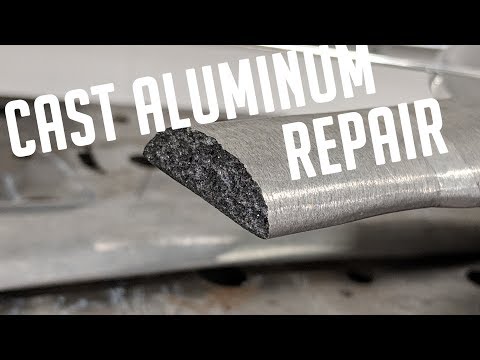Alcast Company Fundamentals Explained
Table of ContentsFascination About Alcast CompanyThe Of Alcast Company3 Simple Techniques For Alcast CompanyExcitement About Alcast CompanySome Of Alcast CompanySome Ideas on Alcast Company You Need To Know
The refined distinction depends on the chemical material. Chemical Contrast of Cast Light weight aluminum Alloys Silicon promotes castability by minimizing the alloy's melting temperature level and boosting fluidness throughout casting. It plays an essential role in allowing elaborate mold and mildews to be loaded properly. In addition, silicon contributes to the alloy's strength and wear resistance, making it important in applications where longevity is important, such as automobile components and engine elements.It also enhances the machinability of the alloy, making it simpler to process right into ended up products. By doing this, iron adds to the total workability of aluminum alloys. Copper enhances electric conductivity, making it helpful in electric applications. It also improves rust resistance and adds to the alloy's total toughness.
Manganese adds to the stamina of light weight aluminum alloys and improves workability. Magnesium is a light-weight aspect that provides stamina and impact resistance to light weight aluminum alloys.
The 5-Minute Rule for Alcast Company
It permits the production of light-weight parts with exceptional mechanical properties. Zinc enhances the castability of light weight aluminum alloys and aids control the solidification process during spreading. It boosts the alloy's strength and solidity. It is often located in applications where detailed shapes and great information are essential, such as ornamental spreadings and particular automotive components.
The key thermal conductivity, tensile toughness, return strength, and elongation differ. Amongst the above alloys, A356 has the greatest thermal conductivity, and A380 and ADC12 have the cheapest.
Alcast Company Fundamentals Explained

In precision casting, 6063 is fit for applications where complex geometries and premium surface coatings are critical. Instances consist of telecommunication units, where the alloy's superior formability permits smooth and visually pleasing styles while keeping architectural integrity. In the Lights Solutions market, precision-cast 6063 parts develop stylish and effective illumination components that require detailed forms and good thermal efficiency.
It results in a finer surface area finish and far better corrosion resistance in A360. The A360 exhibits exceptional elongation, making it optimal for complicated and thin-walled elements. In accuracy spreading applications, A360 is appropriate for markets such as Consumer Electronics, Telecommunication, and Power Devices. Its enhanced fluidness permits detailed, high-precision parts like smartphone cases and interaction gadget housings.
The Definitive Guide for Alcast Company
Its distinct homes make A360 a beneficial choice for precision casting in these sectors, enhancing item sturdiness and top quality. Casting Foundry. Light weight aluminum alloy 380, or A380, is a commonly utilized spreading alloy with numerous distinct characteristics.
In precision spreading, aluminum 413 shines in the Consumer Electronic Devices and Power Equipment industries. This alloy's superior deterioration resistance makes it a superb choice for exterior applications, making certain durable, long lasting products in the pointed out sectors.
The Facts About Alcast Company Revealed
The aluminum alloy you pick will substantially influence both the casting process and the homes of the last item. Since of this, you must make your choice carefully and take an enlightened method.
Figuring out the most appropriate aluminum alloy for your application will imply considering a wide array of attributes. The initial group addresses alloy attributes that impact the production process.
Alcast Company for Beginners
The alloy you pick for die spreading directly influences numerous aspects of the spreading process, like just how very easy the alloy is to function with and if it is prone to casting flaws. Warm cracking, also called solidification cracking, is a normal die spreading issue for aluminum alloys that can result in interior or surface-level tears or cracks.
Particular aluminum alloys are more susceptible to warm breaking than others, and your selection ought to consider this. One more typical flaw discovered in the die spreading of light weight aluminum is die soldering, which is when the actors sticks to the die wall surfaces and makes ejection tough. It can harm both the cast and the die, so you need to seek alloys with high anti-soldering properties.
Corrosion resistance, which is already a significant quality of light weight aluminum, can differ substantially from alloy to alloy and is an essential particular to consider depending on the environmental conditions your product will be exposed to (Casting Foundry). Use resistance is an additional residential property frequently looked for in aluminum products and can set apart some alloys